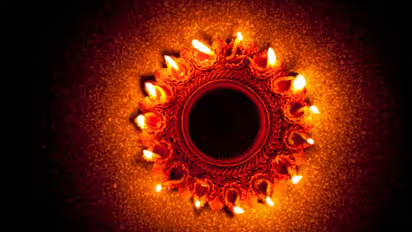Diwali 2022: Here are some different reasons Diwali is celebrated in India
We don't just celebrate Diwali just to mark the return of Lord Rama to Ayodhya after his exile. But there are also many other reasons Diwali is celebrated in India Here are some of them.
Explore the latest Lifestyle News covering fashion, wellness, travel, Food and Recipes, and more. Stay updated with trending Health News, fitness tips, and expert insights to inspire your daily living. Discover personalized lifestyle trends that keep you stylish and informed. Download the Asianet News Official App from the Android Play Store and iPhone App Store for everything that adds value to your everyday life.
